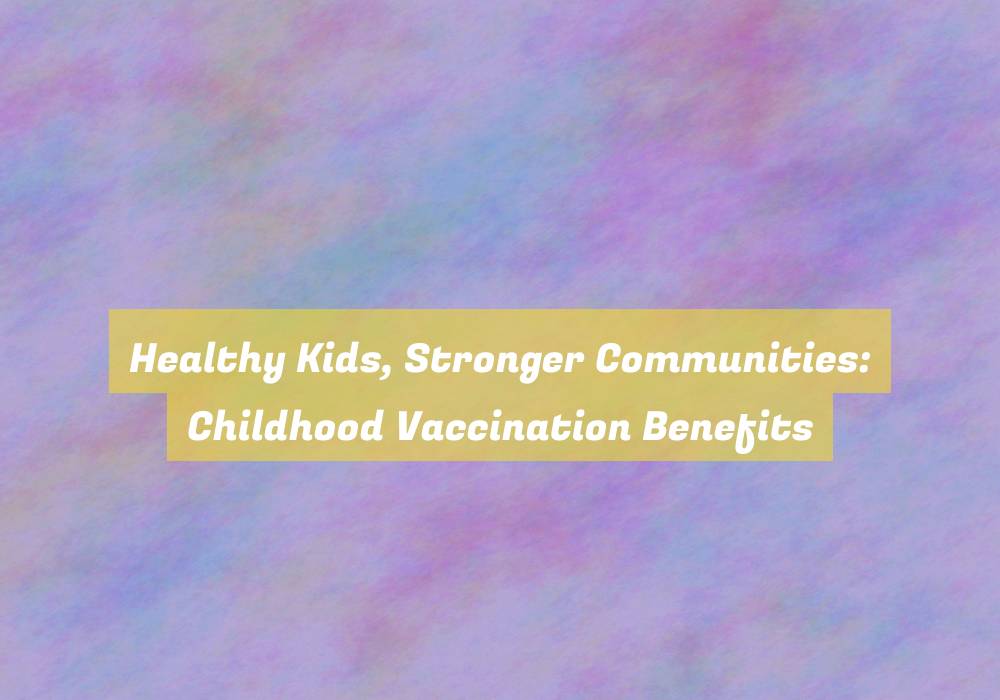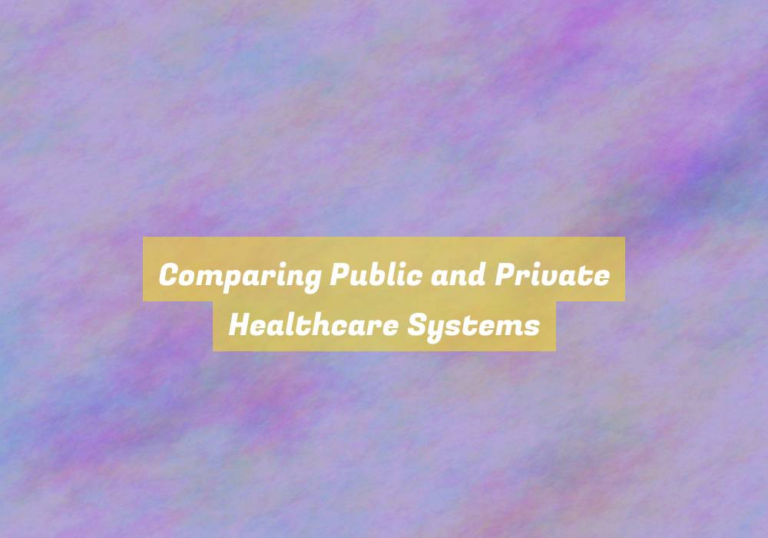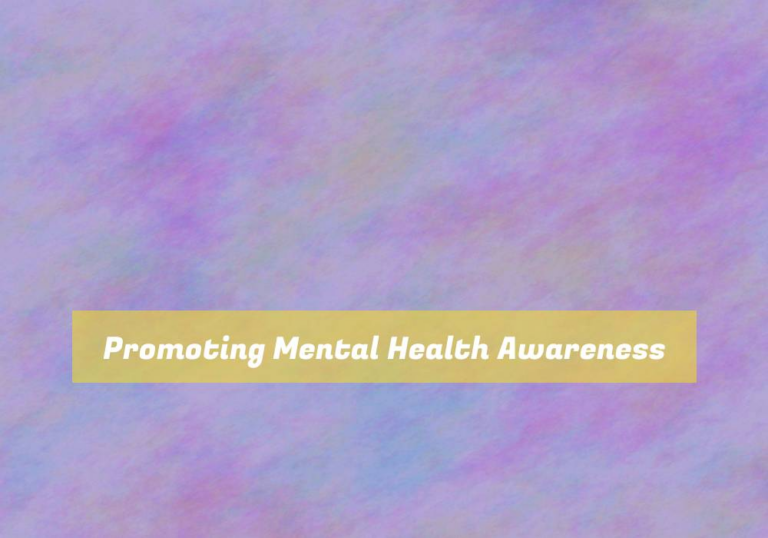Healthy Kids, Stronger Communities: Childhood Vaccination Benefits
Have you ever stopped to consider the far-reaching impact of childhood vaccination? From preventing the spread of infectious diseases to fostering healthier and more resilient communities, the benefits of immunization are profound.
But thereG??s more to this story than just individual health. As we explore the interconnected web of health, economic, and societal factors, youG??ll gain a deeper understanding of why childhood vaccination is a cornerstone of public health.
Importance of Childhood Vaccination
Ensuring childhood vaccination is vital for protecting children from serious diseases and preventing the spread of illness in the community. By vaccinating your child, you not only shield them from potentially life-threatening illnesses such as measles, mumps, rubella, polio, and whooping cough, but you also contribute to the overall health of the community.
Vaccination creates a protective shield around your child, making it harder for diseases to spread and endanger those who are unable to get vaccinated due to age or medical conditions. ItG??s not just about your child; itG??s about creating a safer environment for everyone.
Childhood vaccination not only safeguards your childG??s health but also saves time and money by preventing costly medical treatments and time off work. By getting your child vaccinated, youG??re investing in their long-term well-being and the well-being of those around them. ItG??s a small action with a big impact.
Vaccines are rigorously tested for safety and effectiveness, and the benefits far outweigh the minimal risks associated with them. So, for the sake of your childG??s health and the health of the community, ensure they receive all recommended vaccinations.
Role in Preventing Infectious Diseases
By vaccinating your child against infectious diseases, you actively safeguard their health and contribute to the overall well-being of the community. Vaccines are crucial in preventing the spread of infectious diseases such as measles, mumps, rubella, polio, and whooping cough. These diseases can have serious consequences, including hospitalization and even death, especially for young children with developing immune systems.
When your child is vaccinated, theyG??re less likely to contract and spread these illnesses to others, including those who may not be able to receive vaccines due to medical reasons. This concept is known as G??herd immunity,G?? which helps protect the most vulnerable members of society. By participating in vaccination efforts, you play a vital role in breaking the cycle of infection, ultimately reducing the overall prevalence of these diseases within the community.
Additionally, lower disease rates lead to decreased healthcare costs and fewer missed days of school and work, resulting in a healthier and more productive community. Therefore, by vaccinating your child, you arenG??t only safeguarding their health but also actively contributing to the well-being of the larger community.
Economic Benefits of Vaccination
With childhood vaccination playing a crucial role in preventing infectious diseases, it also brings about substantial economic benefits that positively impact communities and families.
By preventing illnesses such as measles, mumps, and whooping cough, childhood vaccination helps to reduce healthcare costs for families and communities. The economic burden of treating preventable diseases can be overwhelming for families, especially those without health insurance. Vaccination not only reduces the direct costs associated with medical care but also decreases the indirect costs related to lost productivity and time off work for parents caring for sick children.
Furthermore, vaccination contributes to long-term economic stability by averting the expenses of prolonged medical treatments and hospitalizations. It also supports a healthier workforce, as parents can remain in the workforce rather than taking time off to care for sick children.
Additionally, by preventing outbreaks of infectious diseases, vaccination helps to safeguard tourism and local businesses, preventing potential economic downturns in affected areas.
Building Healthier Communities
To foster healthier communities, encouraging widespread vaccination participation is essential for preventing the spread of infectious diseases and protecting public health. By ensuring that a majority of community members are vaccinated, the overall risk of disease transmission is significantly reduced. When a large portion of the population is immunized, it creates a phenomenon known as G??herd immunity,G?? which provides indirect protection to those who arenG??t vaccinated, including individuals who canG??t be vaccinated due to medical reasons. This protective shield helps to safeguard the most vulnerable members of the community, such as infants, the elderly, and individuals with weakened immune systems.
Furthermore, promoting vaccination within communities fosters a sense of collective responsibility for maintaining public health. It encourages individuals to take an active role in safeguarding not only their own well-being but also that of their neighbors, friends, and family members. This communal approach to health cultivates a supportive environment where everyone works together to prevent the spread of infectious diseases.
Ultimately, building healthier communities through widespread vaccination participation is a crucial step towards creating safer and more resilient societies for all.
Conclusion
In conclusion, childhood vaccination plays a crucial role in:
- Preventing infectious diseases
- Building healthier communities
- Providing economic benefits
By ensuring that kids are vaccinated, you arenG??t only protecting their health but also the well-being of the entire community. Together, we can create a safer and stronger environment for our children to grow and thrive.
So, make sure to stay informed and get your child vaccinated for a healthier future.






Your exploration of the impact of childhood vaccination is not only timely but crucial in our ongoing dialogue about public health. While it’s clear that vaccinations play an essential role in safeguarding individual health and protecting communities at large from outbreaks of diseases that could otherwise lead to tragic consequences, I think it’s also important to delve into the nuances that shape public perception and acceptance of vaccines.
Your point about the nuances shaping public perception and acceptance of vaccines is vital. Understanding how personal experiences, cultural beliefs, and even misinformation influence attitudes toward vaccination can significantly impact public health efforts. Many people may have hesitations rooted in fear or mistrust, often stemming from historical injustices or inadequate information.